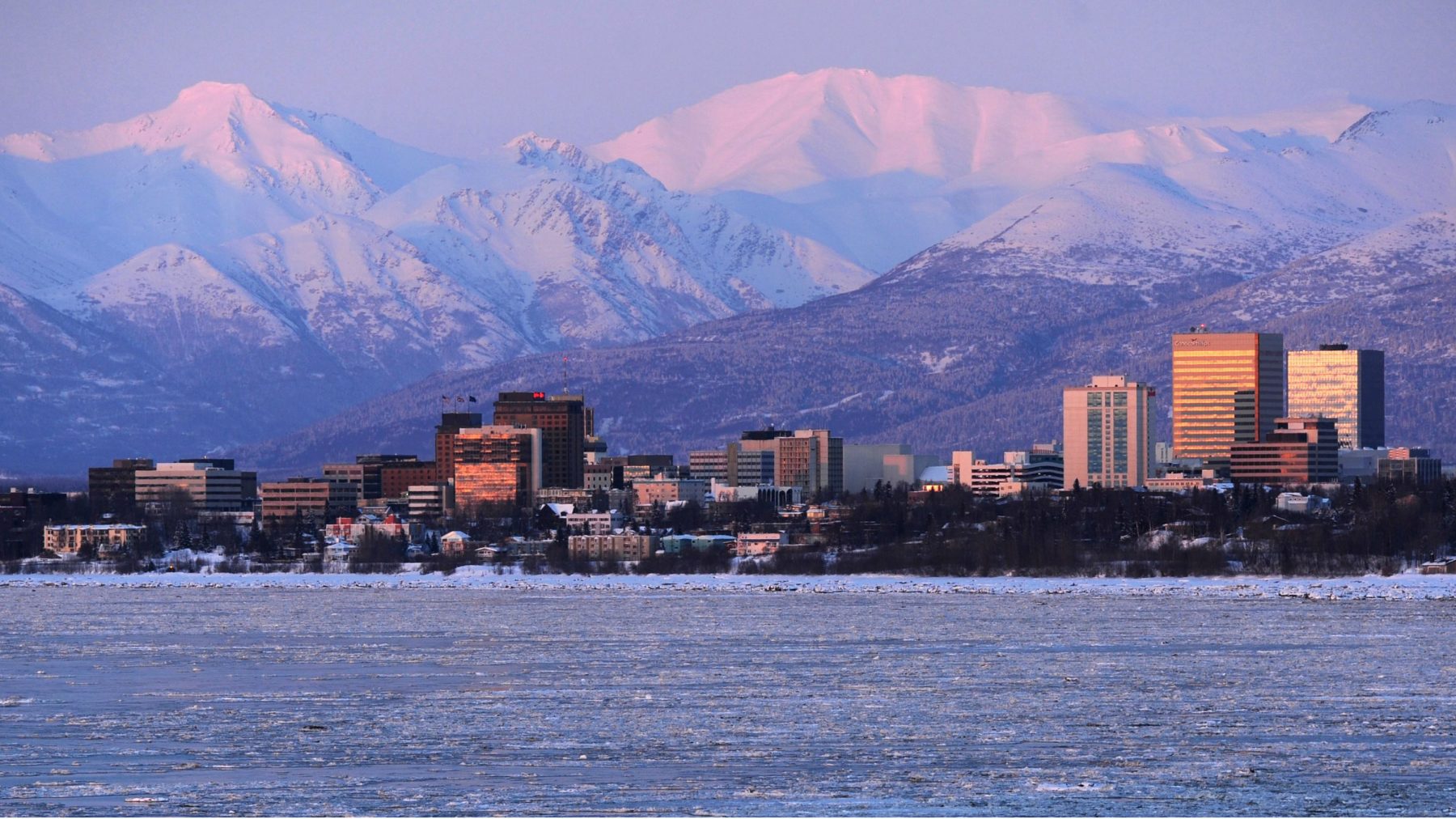Alaska’s largest city unveils climate plan calling for 80 percent emissions cut by 2050

The Municipality of Anchorage is unveiling a long-term plan for handling climate change. On Tuesday, the city’s Assembly is receiving the 106-page document, which outlines everything from transportation recommendations to emission reduction targets.
The Climate Action Plan is supposed to be a roadmap for Anchorage in how to cope with climate change. Shaina Kilcoyne works on energy and sustainability issues for the city, and is one of the report’s lead authors.
“This is actually not very unique,” Kilcoyne said in her office during a recent interview. “Cities around the world are developing climate action plans. This is really the new norm in city planning.”
The document has recommendations both big and small. It includes everything from better handling of waste, to urban design improvements, to suggestions for financing energy efficient renovations.
The threats from climate loom large, with its impacts on residential life and municipal finances laid out early on. More wildfires. Icier winters. Hundreds of millions annually to repair public infrastructure around the state from storms, erosion and thaw. The plan calls for a 40 percent reduction in emissions by 2030. And more after that.
“We do have a big goal to reduce our emissions by 80 percent by 2050, and that is both ambitious and necessary. And this plan puts us on that path,” Kilcoyne said. “But frankly, it doesn’t go far enough to get us there.”
According to the document, the municipal government is only responsible for about five percent of the city’s total emissions. Residential and private commercial entities consume 79 percent of all the energy used in the municipality. So a lot of the plan outlines ways to partner with non-governmental entities in order to to incentivize environmentally friendly measures.
“The plan itself doesn’t change policy,” Kilcoyne said. “So now, as we implement the plan, we’ll be working on the policy that is binding.”
One major impediment to emissions reductions is the energy supply. Though the administration of Mayor Ethan Berkowitz is eager to highlight new solar projects coming online, as well as other renewables like hydroelectric and wind, Anchorage is still powered primarily by fossil fuels. Most buildings are heated with natural gas, which also accounts for 86 percent of all the electricity generated.
If the Assembly adopts the plan, then the real work will begin. Even with a liberal-leaning composition on the 11-member body right now, and general alignment with the Berkowitz Administration, there’s no telling how many of the recommended policies will be enacted. But Kilcoyne thinks even if the political winds shift in Anchorage, the problems of climate change are too close to residents’ lives to ignore.
Related stories from around the North:
Canada: Youth in Arctic Canadian town take aim at grocery store’s plastic use, CBC News
Finland: EU Commission urges Finland to do more to fight water pollution from agriculture, Yle News
Norway: Arctic Norway: temperatures on Svalbard have been above normal for 100 straight months, The Independent Barents Observer
Russia: Warmest winter ever on the Northern Sea Route, The Independent Barents Observer
Sweden: Local shipping generates more emissions than domestic flights, Radio Sweden
United States: Trump signs Alaska-backed bill targeting plastic trash in Ocean, Alaska Public Media



